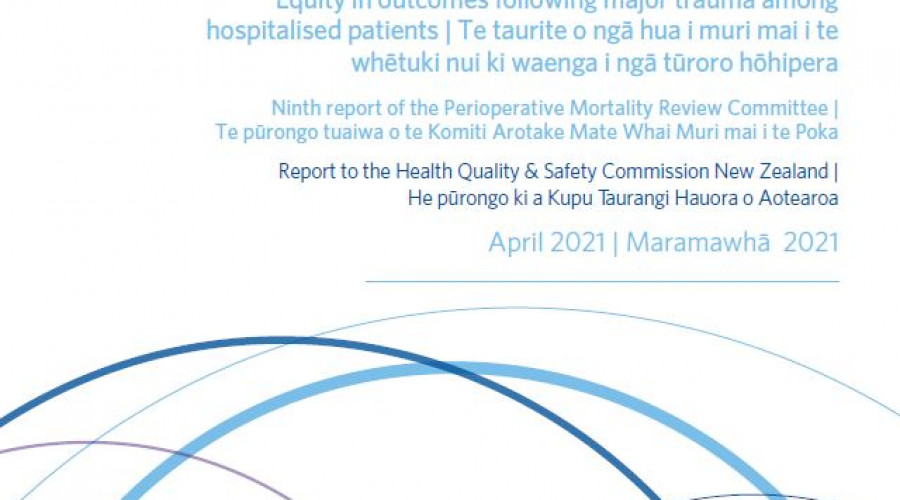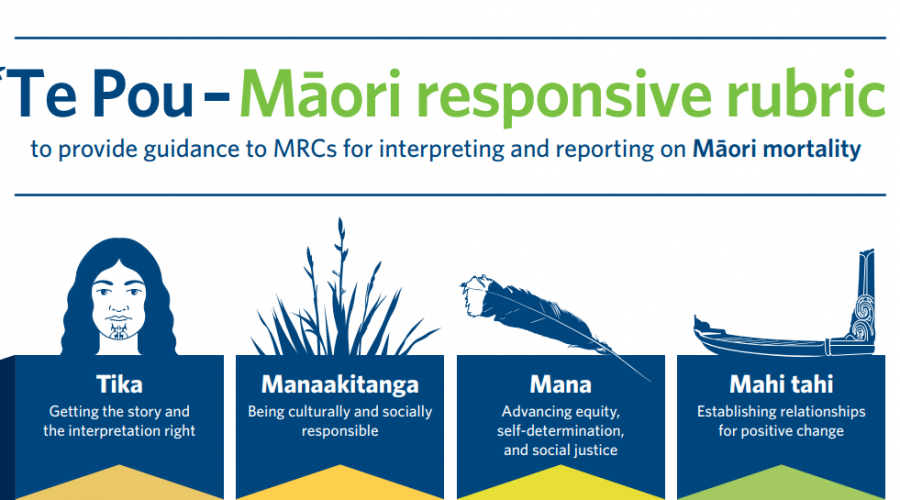Pito kōrero hou tonu
Latest news
-
New report highlights deaths of mothers and babies due to family violence
30 Jun 2025
Investigating early interventions to save the lives of mothers and babies is one of the actions set to follow a report examining violence-related deaths of women and girls in Aotearoa New Zealand.
-
New data shows surgery mortality outcomes improving
22 Oct 2024
A new ‘Surgery and risk in Aotearoa New Zealand’ infographic has been released with data updated to December 2023 showing overall surgical mortality rates in New Zealand are not increasing.
-
Frustration as inequities continue to impact Aotearoa New Zealand's perinatal death rates
01 Jul 2024
Unaddressed inequities mean Aotearoa New Zealand’s perinatal death rates have shown no significant change for 15 years.
Ngā rauemi
Featured resources

Sixteenth Annual Report of the Perinatal and Maternal Mortality Review Committee | Te Pūrongo ā-Tau Tekau mā Ono o te Komiti Arotake Mate Pēpi, Mate Whaea Hoki
The Sixteenth Annual Report of the Perinatal and Maternal Mortality Review Committee | Te Pūrongo ā-Tau Tekau mā Ono o te Komiti Arotake Mate Pēpi, Mate Whaea Hoki.

Ninth report of the Perioperative Mortality Review Committee | Te pūrongo tuaiwa o te Komiti Arotake Mate Whai Muri mai i te Poka
Equity in major trauma outcomes is the focus of this ninth Perioperative Mortality Review Committee (POMRC) report.

Te Pūrongo ā-Tau Tekau mā Toru o te Komiti Arotake Mate Pēpi, Mate Whaea Hoki | Thirteenth Annual Report of the Perinatal and Maternal Mortality Review Committee
The Thirteenth Annual Report of the Perinatal and Maternal Mortality Review Committee | Te Pūrongo ā-Tau Tekau mā Toru o te Komiti Arotake Mate Pēpi, Mate Whaea Hoki.

Te Pou – Māori responsive rubric and guidelines
Ngā Pou Arawhenua has assisted the Health Quality & Safety Commission's mortality review committees to better understand Māori mortality review practice through the production of Te Pou, the Māori responsive rubric and guidelines.
Latest resources
-
Family violence experts in the criminal court: the need to fill the void
-
Family violence death information sheet series
-
Child and Youth Mortality Review Committee: 15th data report: 2015–19 | Te Rōpū Arotake Auau Mate o te Hunga Tamariki, Taiohi: Te pūrongo raraunga 15: 2015–19
-
Sixteenth Annual Report of the Perinatal and Maternal Mortality Review Committee | Te Pūrongo ā-Tau Tekau mā Ono o te Komiti Arotake Mate Pēpi, Mate Whaea Hoki
-
Surgery and risk in Aotearoa New Zealand | Te pōkanga me te tūponotanga i Aotearoa





